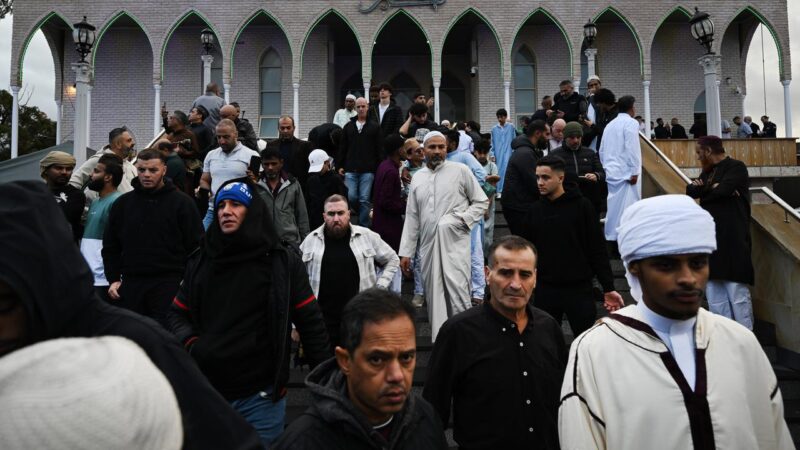The National Response to Islamophobia report confirms what Muslim Australians have long known: anti-Muslim prejudice is systemic. Professor Fethi Mansouri calls for rethink.
The report was released this week by the Office of the Special Envoy to Combat Islamophobia, with its main conclusion being that prejudice is not confined to a handful of abusive individuals. It is systemic — embedded in schools, workplaces, laws, media narratives, and in the everyday harassment of visibly Muslim people, especially women.
These findings are also not new. Our own research at Deakin University and much public opinion data have, in recent years, shown a worrying trend of accelerating anti-Muslim attitudes.
There are also a number of areas where the report could and should have done much better. Most strikingly, for a Report on Islamophobia, its silences on major recent and current Islamophobic events are as revealing as its well-meaning recommendations.
Ignoring the main narrative
First, the Christchurch massacre – the worst act of anti-Muslim violence in modern history – barely gets a mention. Fifty-one worshippers were gunned down in their mosques, many with ties to Australia.
Christchurch has devastatingly revealed that Islamophobia is not simply about Muslims feeling offended, being sensitive to criticisms of Islam as a religion, or Muslim migrants being incapable or unwilling to integrate socially and assimilate culturally.
Second, the Report avoids confronting hyper-securitisation. Since 9/11, Muslim Australians have lived under some of the harshest counter-terrorism laws in the democratic world, alongside a sprawling CVE (Countering Violent Extremism) regime that has almost exclusively targeted Muslims. Surveillance, raids, and “community engagement” framed through suspicion have entrenched stigma.
Any serious attempt to tackle Islamophobia must grapple with this machinery of control.
Sensible proposals
The report ranges in scope and ambition. It calls, among other things, for curriculum reform, data collection, community safety programs, and legal change. It points to the weight of evidence, collected by groups such as the Islamophobia Register Australia, showing years of racist abuse and negative media framing. The Report’s call for a coordinated federal response was overdue and would, in theory, be a step in the right direction.
Some of the Report’s proposals are important and achievable.
Data collection is the clearest starting point: police hate-crime figures are inconsistent, and national surveys rarely capture religious discrimination. Embedding Islamophobia in ABS surveys and police registers would make the problem harder to deny.
Education and awareness programs should also be rolled out; research shows sustained anti-racism initiatives can shift attitudes across generations.
But without acknowledging Christchurch, securitisation, and anti-Palestinian racism, the strategy risks reducing Islamophobia to matters of civility and sensitivity. Recognition days, awareness campaigns, and grants may improve atmospherics, but they will not dismantle the structures that cast Muslim and Arab Australians as perpetual outsiders, suspects, or enemies within.
Australia has produced many reports on racism. The question is whether this one will drive structural reform,
or whether Islamophobia will remain endlessly studied, politely condemned, and institutionally entrenched.
The test is clear: will governments act, or will Muslim Australians be told — once again — to wait and to be more resilient in the face of bigotry and hate?
The special envoy conundrum
We have seen in recent years a proliferation of special envoys, from the Special Envoy for Social Cohesion, now defunct, to the two special envoys on Antisemitism and Islamophobia, respectively.
Special Envoys are ‘diplomatic’ appointments that have neither ministerial statutory powers nor, necessarily, broad community or political support. Such appointments appear at best to be a reaction to specific events.
At worst, they can compound the very issues they were meant to address.
Tackling various forms of racism, including those specifically directed against Jewish and Muslim Australians, should be pursued through existing statutory bodies such as the Australian Human Rights Commission. These bodies are best equipped and resourced to deal with all forms of discrimination if properly resourced and supported.
Critics of Antisemitism Summit ‘antisemitic’ says Israeli antisemitism chief
Professor Fethi Mansouri is a Deakin Distinguished Professor in Migration and Intercultural Studies and founding Director of the Alfred Deakin Institute for Citizenship and Globalisation (ADI), a leading research institute that undertakes significant social sciences and humanities research in Australia and across many disciplinary fields.

